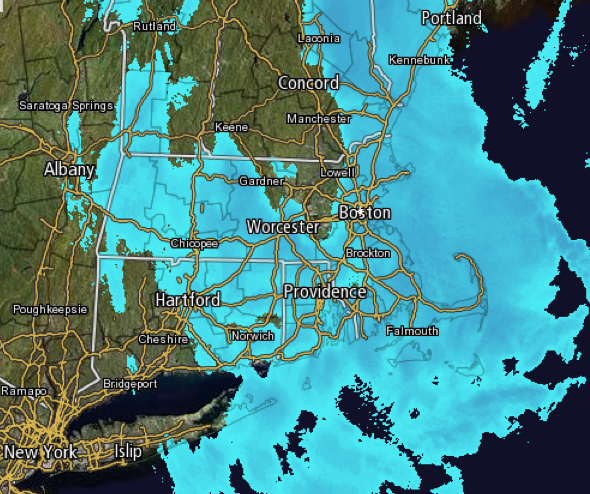The blizzard hit coastal New England, not New York City. In fact, it’s still hitting. Wish I was there, because I love snow. Here in New York City we got pffft: about eight inches in Central Park: an average winter snowstorm. No big deal.
I was set up with my GoPro to time-lapse accumulations on the balcony outside our front window. I had two other cameras ready to go, and multiple devices tuned in to streams of news stories, tweets and posts. Instead the story I got was an old and familiar one of misplaced sensationalism. Nothing happening, non-stop. At least here.
The real news was happening in Boston, Providence, Worcester, Montauk, Scituate, the Cape and Islands. But I didn’t have anything useful to add to what thousands of others were showing, posting, tweeting and blogging. Back during Sandy, I had a lot to blog because important stuff wasn’t being said on media major and minor. For example I predicted, correctly, that many radio and TV stations would be knocked off the air by flooding. I also thought, correctly, that New York was under-prepared for the storm.
Not so this time, for any of the places the storm has hit.
With the snow still falling over New England…
 … there’s a good chance that it will break old records (and probably already has in some places). But the cable news system is a still a broken record: endless pronouncements by undersecretaries of the overstate.
… there’s a good chance that it will break old records (and probably already has in some places). But the cable news system is a still a broken record: endless pronouncements by undersecretaries of the overstate.
As more cords get cut, and more of us inform each other directly, new and better forms of aggregation and intermediation will emerge. To some extent the major media are already adapting, showing videos, tweets and posts from the Long Tail. But I suspect that the next major shift will be to something different than anything we have now.
I suspect the biggest innovations will be around discovery — of each other. Who has the information I want, now? Who or what is being fully useful, rather than just noisy or repetitive? Search from Google and Bing, while good in many ways, seems hidebound and stale to me. Its personalization is mostly about guesswork that’s hard to figure or control, and is jiggered for advertising as well.
For example, right now I’d like to know more about the breached sea wall in Scituate. Here’s a Yahoo (Bing) search. Most of the top results are at boston.com, which says to me — before I even look at any of them — “Oh, boston.com is the Boston Globe, and I’ve already run out the five views it gives me on this browser before it thows up the paywall.” In fact there is no paywall for some of the local stories, but I’ve seen it so many times that I don’t want to go there. The second thing I notice is that they’re all old: from 2014 and 2013. When I look for the same thing at Google News, the top results are the paywalled Globe ones. So I search for Scituate on Twitter, which is more helpful, but not fine-grained enough. What if I want to read only people who live there and are reporting from there?
Try to think outside of the search and social media boxes for a minute. Think all the way outside the Web.
Just think Internet, which is nothing more than a way for anybody or anything to connect to anybody or anything. Let’s find a way to do discovery there. We have some crude beginnings with stuff like this. But we need something much more natural, distributed and outside the control of any company or government — as is the Internet, by nature.
Once we have that, all kinds of amazing stuff will start to open up.
Leave a Reply